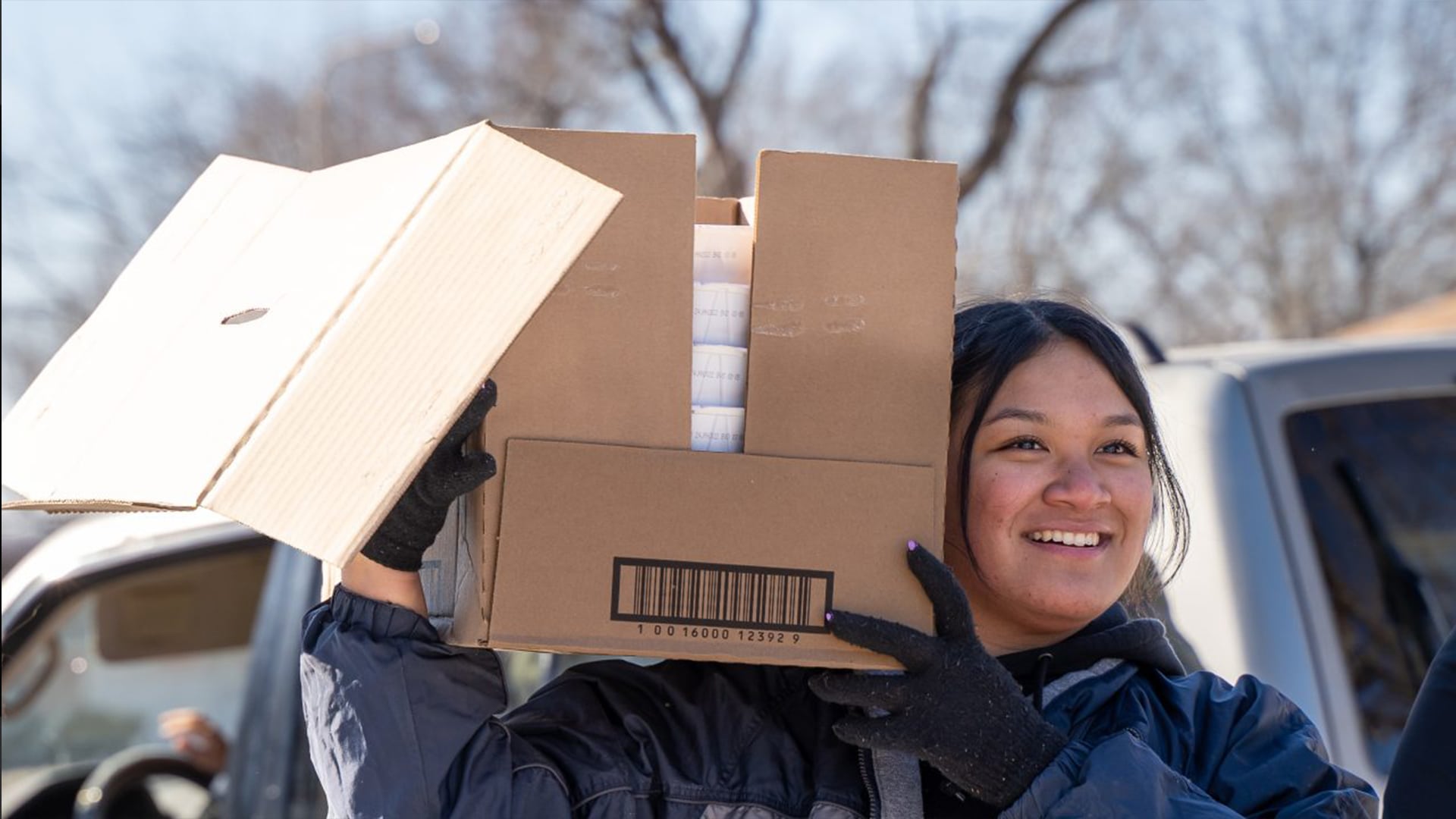
The Independence Samoan-English Seventh-day Adventist Church and the Independence Ebenezer Spanish Seventh-day Adventist Church in Independence, Missouri, United States, currently provide food for about 200 families each month through their mobile food pantry.
In 2019, the Samoan-English church wanted to find a new way to serve others. The church members learned the New Haven Seventh-day Adventist Church, located in the neighboring Kansas-Nebraska Conference, held a food pantry weekly and needed more volunteers. Members of the Samoan-English church started volunteering there.
“I started taking young people or whoever was available every Tuesday. And we enjoyed it,” Samoan-English church pastor Mark Tagaloa said.
In 2020, when the pandemic hit, churches and food pantries were closed. The Samoan-English church looked for ways to continue serving others during this time. Tagaloa and his wife, Sandee, decided they would use their own garage as storage for a food pantry.
“We were looking for ways to stay active as a church and also just to have purpose in a lot of people’s lives, especially as things were looking very dim with COVID,” Sandee Tagaloa said.
Each week, the couple picked up food from Harvesters, a food bank, and stored it in their garage. Then the couple created food boxes they would deliver to church members, who then gave away the boxes to neighbors or those in need.
After six months of running the food pantry from the Tagaloas’ garage, the church was approved to start a mobile pantry by Harvesters. The church faced an issue, however; they did not have enough space in their own building to smoothly run a mobile food pantry.
Mark Tagaloa reached out to Juan Acosta, pastor for the nearby Ebenezer Spanish church. He pointed out to Acosta that the Ebenezer Spanish church could be a suitable location for the mobile food pantry. The Ebenezer Spanish church agreed and joined the Samoan-English church to host the mobile food pantry.
The first mobile food pantry event was held in April 2021. The volunteers said they were nervous no one would show up, but through word of mouth and social media, the community learned of the pantry. Many families visited and received free food.
Since it first opened, the pantry has doubled the number of people it serves, according to Sandee Tagaloa.
“Every month, it gets bigger and bigger,” she said.
To serve so many people, the churches rely on their members to volunteer. The volunteers arrive two hours before the mobile food pantry opens at 10:00 a.m. to help arrange the food.
Sandee Tagaloa said regardless of the conditions, like heavy rainstorms and cold temperatures, volunteers are always willing to help.
“The volunteers are so wonderful,” she said. “It is such a great joy to see people so willing to serve.”
Volunteers say they enjoy helping at the mobile food pantry because they can see an impact in the community.
“I decided to volunteer because I’m very passionate about volunteering and helping out the community in any way that I can,” Janet Faapouli, a young adult member of the Samoan-English church, said.
As the pantry continues to serve more people each month, members of the two churches hope they can expand their ministries.
Acosta said he hopes the Ebenezer Spanish church can use one of its three buildings to serve hot food meals to those in need and reach even more of the community.
Mark Tagaloa hopes the mobile food pantry can be moved from a Wednesday schedule to a Saturday (Sabbath) schedule. This would allow more church members the opportunity to volunteer.
“A lot of our members work on Wednesday,” he explained. “They love to hear the testimony stories, but we want everyone to experience it firsthand.”
The original version of this story was posted by the Mid-America Union Conference Outlook.